Research and Publications
Faculty Bookshelf
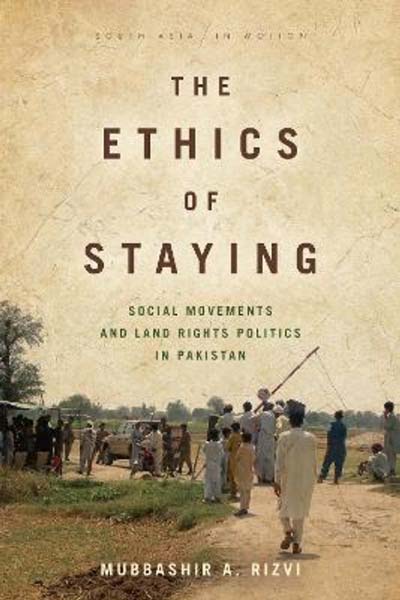
The Ethics of Staying: Social Movements and Land Rights Politics in Pakistan
Mubbashir Rizvi
In The Ethics of Staying, Mubbashir A. Rizvi presents an original framework for understanding the Anjuman Mazarin Punjab (AMP), one of the largest, most successful land rights movements in South Asia. This group of Christian and Muslim tenant sharecroppers, against all odds, successfully resisted Pakistan military's bid to monetize state-owned land, making a powerful moral case for land rights by invoking local claims to land and a broader vision for subsistence rights.
American Institute of Pakistan Studies 2021 Book Prize
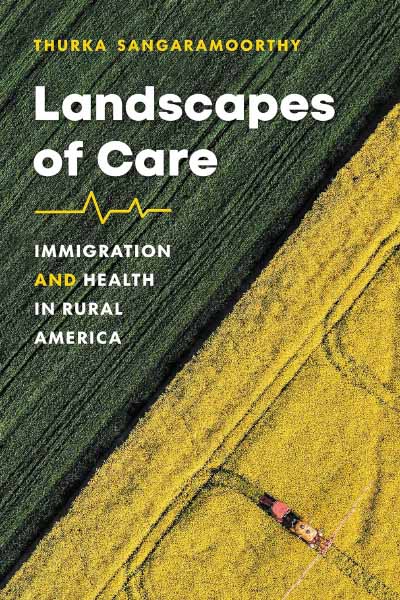
Landscapes of Care: Immigration and Health in Rural America
Thurka Sangaramoorthy
Drawing from fieldwork that centers on Maryland's sparsely populated Eastern Shore, Sangaramoorthy shows how longstanding issues of precarity among rural health systems along with the exclusionary logics of immigration have mutually fashioned a "landscape of care" in which shared conditions of physical suffering and emotional anxiety among immigrants and rural residents generate powerful forms of regional vitality and social inclusion.
Honorable Mention, 2023 Society for the Anthropology of North America Book Prize
Honorable Mention, 2024 Oliver Cromwell Cox Book Award, Racial and Ethnic Minorities Section, American Sociological Association.
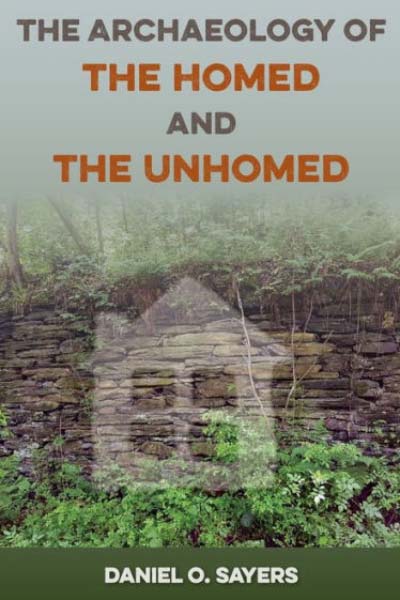
The Archaeology of the Homed and the Unhomed
Daniel Sayers
Sayers builds a conceptual model that focuses on the connection between the unhomed and the home and uses it to generate new insights into pre–Civil War communities of Maroons and Indigenous Americans, Great Depression–era hobo communities, and Midwest farmsteads. In doing so, he highlights the social complexities, ambiguities, and significance of the home and the unhomed in the archaeological record. Using a variety of data sources including documentary records and material culture and drawing on extensive fieldwork, Sayers illuminates how homelessness can be created, reproduced, and disparaged by the dominant culture.
Choice Outstanding Academic Title
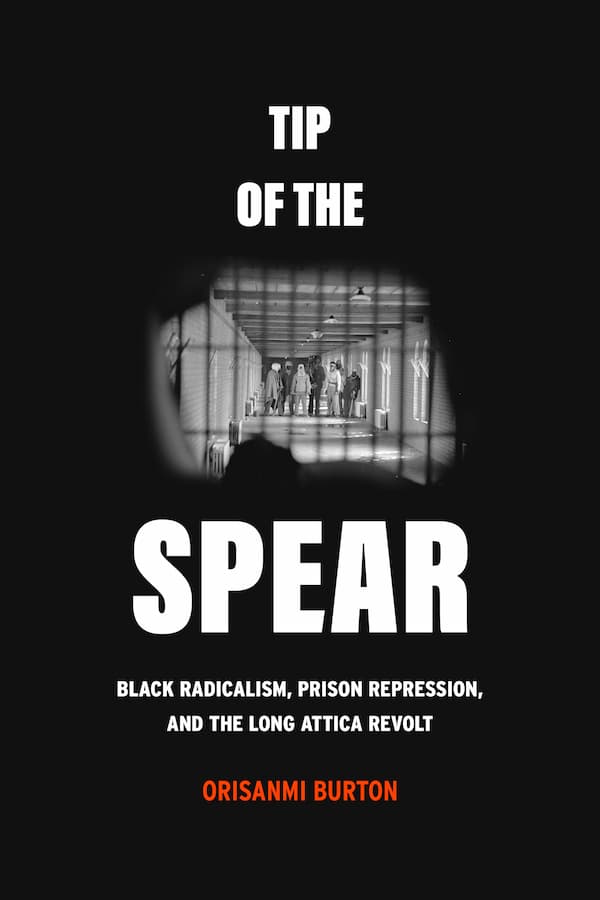
Tip of the Spear: Black Radicalism, Prison Repression, and the Long Attica Revolt
Orisanmi Burton
Orisanmi Burton explores what he terms the Long Attica Revolt, a criminalized tradition of Black radicalism that propelled rebellions in New York prisons during the 1970s. The reaction to this revolt illuminates what Burton calls prison pacification: the coordinated tactics of violence, isolation, sexual terror, propaganda, reform, and white supremacist science and technology that state actors use to eliminate Black resistance within and beyond prison walls.
25th Susanne M. Glasscock Book Prize, Finalist
Museum of African American History Stone Book Award Shortlist 2024
Research Interests
 Thurka Sangaramoorthy
Thurka Sangaramoorthy
Cultural and medical anthropology, global health and development, migration and refugees, climate change and environmental equity, health policy and governance, critical studies of racialization.
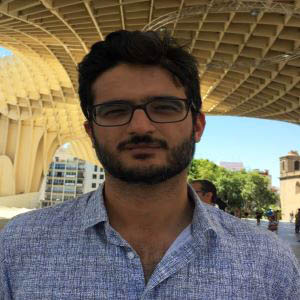 Mubbashir Rizvi
Mubbashir Rizvi
Social-cultural anthropology, social movements, environmental anthropology, markets, racial capitalism
 Zev Cossin
Zev Cossin
Historical archaeology, environmental anthropology, environmental justice, restorative history and public archaeology, material culture and heritage, infrastructures of colonialism
 Daniel Sayers
Daniel Sayers
Historical archaeology; relevant and impactful communities; Maroons, itinerants, and self-emancipators; animals entangled in the human world; rural lives and peoples; critical theories of capitalism
 Alanna Warner-Smith
Alanna Warner-Smith
Historical bioarchaeology; migration, immigration, and mobility; labor; embodiment of inequality; bioarchaeological and archaeological ethics; history of museum collections; race and racialization; anthropology of the archive
 C. Anne Claus
C. Anne Claus
Environment, sustainability, food studies, oceans, Japan
 Zoltán Glück
Zoltán Glück
Political and historical anthropology, colonialism and postcolonialism, security and the War on Terror, critical geography and theories of space and place, racial capitalism, political economy
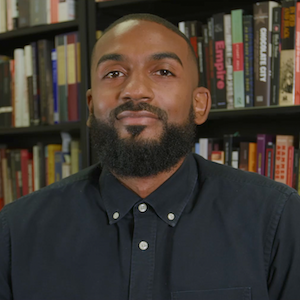 Orisanmi Burton
Orisanmi Burton
Race & racialization; Black radicalism & white supremacy; policing, criminalization & prisons; gender & masculinity; war & counterinsurgency; ethnography and archives
 Manissa Maharawal
Manissa Maharawal
Gentrification, social movements, race and racism, urban anthropology, oral history, housing policy, technology, urban political economy
 Chuck Sturtevant
Chuck Sturtevant
Settler colonialism; Indigenous politics; race and ethnicity in Latin America; political anthropology; ethnographic documentary filmmaking; nationhood and statecraft
Recent Publications
- Alanna Warner-Smith published "Slow (Bio)archaeology: Recovering Stories of Irish Immigrant Lives in the Huntington Collection" in Historical Archaeology. The article reconsiders normative categories of analysis in bioarchaeology using the lens of "slow science."
- Alanna Warner-Smith's chapter in The Routledge Handbook of Feminist Anthropology (forthcoming, edited by Pamela Geller), “Global Mobilities, Intimate Movements: Embodying Nineteenth-Century Domestic Labor,” centers domestic work in processes of industrialization and urbanization.
- Zoltán Glück recently edited a special issue of American Anthropologist, titled “Forever War: Anthropology and the Global War on Terror,” (2024) featuring leading scholars whose work grapples with the social, political, ecological and human costs of the post 9/11 wars. His lead article titled, “Anthropology and the Security Encounter: Toward an Abolitionist Anthropology in the age of Permanent War” argues for an engaged and politically committed form of anthropology that seeks to directly confront punitive systems of “security.”
- Alanna Warner-Smith is co-editor of Excavating Bodies in the Archives (under review, School for Advanced Research Press) and Tissues and Traces: Doing Bioarchaeology with/in the Archive (under contract with Berghahn).
- Alanna Warner-Smith and Shannon A. Novak co-authored “History and Bioarchaeology,” published in the Oxford Encyclopedia of Anthropology.
- Manissa Maharawal’s book Anti-Eviction: Fighting Tech-Led Gentrification in San Francisco is currently under review with University of California Press. The book examines the ways that tenants in San Francisco challenge the processes of tech-led gentrification occurring in the city and how in doing so they create new landscapes of care and resistance.
- Chuck Sturtevant published “The settler roots of Plurinational Bolivia: state-sponsored indigenous colonization on Bolivia’s Amazonian ‘frontier’” in Settler Colonial Studies.
- Chuck Sturtevant published “The Hill at the End of the World: Cosmopolitics and State Effects in the Bolivian Amazon” in Ethnos.
Current Grants & Projects
- Thurka Sangaramoorthy serves as a co-investigator on a 5-year study examining policies and best practices to improve the respiratory health outcomes of migrant and seasonal farmworkers. The project, entitled "Research Employing Environmental Systems and Occupational Health Policy Analyses to Interrupt the Impact of Structural Racism on Agricultural Workers and Their Respiratory Health (RESPIRAR)," recently received supplemental funding of $77,597 from the University of Maryland, bringing the total to $165,676.
- Mubbashir Rizvi’s current research focus is on informal urbanism in Karachi’s food markets, and the role of these markets in structuring relations of coexistence in the aftermath of urban violence.
- Zev Cossin is currently collaborating with the Anacostia Watershed Society to connect students with the organization's efforts to research, protect and build a thriving Anacostia River watershed in the DMV.
- Zev Cossin is completing article manuscripts on archaeological research of the impacts of Spanish haciendas and the resilience of laborer families over five centuries in the Ecuadorian highlands.
- Zev Cossin is engaged in ongoing lab ananlysis and interpetation of artifacts from Winnipeg Junction, MN, a railroad boomtown abandoned around 1910. He is working with a large group of devoted students to analyze, interpret, and present that research on campus and beyond.
- C. Anne Claus received funding from Fulbright and the Wenner-Gren Foundation to conduct fieldwork among chefs, home cooks, and seafood advocates in Japan. Claus is also conducting research with graduate students on food waste in the DMV as part of a 5-year interdisciplinary NSF grant.
- Daniel Sayers is actively involved in a collaborative interdisciplinary project focused on an 18th Century Maroon fortress located along the Savannah River; an essay on the project and its initial field survey for the fortress site appeared in the New Yorker in June of 2023.
- Daniel Sayers continues to develop his research design and projects for his “Archaeology, Species, and Human Entitlement Study”.
- Daniel Sayers is busily working with media companies on developing television and streaming projects to bring archaeology and past peoples into public awareness and dialogues.
- Orisanmi Burton was recently awarded a 2024 research stipend from the Rockefeller Archive Center (RAC) to support his research into the history of biomedical experimentation on incarcerated people and other vulnerable populations.
- Manissa Maharawal is a co-lead investigator on the NIH funded project “Examining the Effects of Housing, Structural Racism and Policy Change on Health.”
- Chuck Sturtevant is currently working on a book that explores the colonization of Bolivia’s “Amazonian frontier” as a settler colonial project. This research challenges the uncritical application of Anglocentric racial ideologies to settler colonial projects in Latin America and expands the applicability of settler colonial theory to help us understand the ways that national identity and state sovereignty are intertwined through processes of violence, erasure, and forgetting.